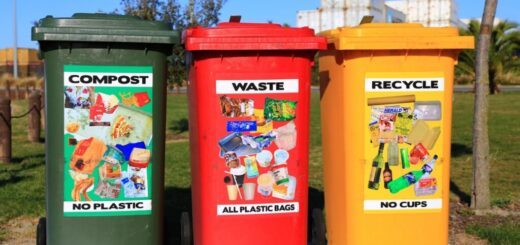Challenges and Opportunities in Implementing Plastic EPR Programs
Introduction
As the world grapples with the growing plastic waste crisis, Plastic Extended Producer Responsibility (EPR) programs have emerged as a promising solution. These programs aim to hold producers accountable for the entire lifecycle of their products, from production to disposal. However, implementing effective Plastic EPR programs comes with its own set of challenges and opportunities. In this blog, we will explore the intricacies of implementing such programs and the role of a Plastic EPR Certification Consultant, with a specific focus on India.
Understanding Plastic EPR
Plastic EPR is a regulatory approach that requires manufacturers, importers, and brand owners to take responsibility for the collection, recycling, and proper disposal of their plastic products. The goal is to shift the burden of managing plastic waste from local governments and taxpayers to the producers themselves. By implementing Plastic EPR programs, countries can promote circular economy principles, reduce environmental pollution, and foster sustainable waste management practices.
Challenges in Implementing Plastic EPR Programs
- Policy Framework and Stakeholder Engagement: Developing a robust policy framework that outlines the roles, responsibilities, and targets for stakeholders is crucial. Engaging and aligning various stakeholders, including manufacturers, government agencies, recycling industries, and consumer groups, is essential to ensure effective implementation.
- Collection Infrastructure: One of the primary challenges is establishing an efficient collection infrastructure for plastic waste. This requires investing in recycling facilities, establishing collection points, and educating the public on proper segregation practices.
- Monitoring and Enforcement: Ensuring compliance with Plastic EPR regulations necessitates a robust monitoring and enforcement mechanism. Regular audits, inspections, and penalties for non-compliance should be implemented to discourage malpractice and maintain program integrity.
- Financial Sustainability: Establishing a sustainable financing model for Plastic EPR programs is critical. Producers may pass the costs of implementing EPR onto consumers, which could impact pricing and consumer behavior. Balancing the financial burden between producers, consumers, and the government is a complex challenge.
Opportunities for Plastic EPR Certification Consultants
Plastic EPR Certification Consultants play a vital role in supporting the implementation of effective Plastic EPR programs. These consultants specialize in providing guidance and expertise to producers and stakeholders involved in the EPR process. Here’s how they can seize opportunities and contribute to the success of Plastic EPR initiatives:
- Compliance Assistance: Plastic EPR Certification Consultants can help manufacturers navigate the complexities of EPR regulations, ensuring their products meet the required standards. They assist in developing strategies to optimize product design for recyclability, packaging reduction, and environmentally friendly materials.
- Program Design and Evaluation: Consultants can collaborate with governments and organizations to design and evaluate Plastic EPR programs. They offer insights on best practices, help set achievable targets, and develop monitoring frameworks to track progress.
- Stakeholder Engagement and Training: Effective communication and engagement with stakeholders are vital for the success of Plastic EPR programs. Consultants can facilitate workshops, training sessions, and awareness campaigns to educate manufacturers, consumers, and waste management authorities about their roles and responsibilities.
- Data Management and Reporting: Consultants can assist in establishing robust data management systems that track and report key metrics, such as plastic waste generation, collection rates, and recycling rates. Accurate data analysis allows for informed decision-making and program optimization.
Plastic EPR Certification Consultant in India
In India, the implementation of Plastic EPR programs is gaining momentum. With its large population and growing plastic consumption, the need for effective waste management solutions is pressing. Plastic EPR Certification Consultants in India can provide invaluable support by adapting global best practices to the local context, addressing region-specific challenges, and assisting stakeholders in meeting compliance requirements.



